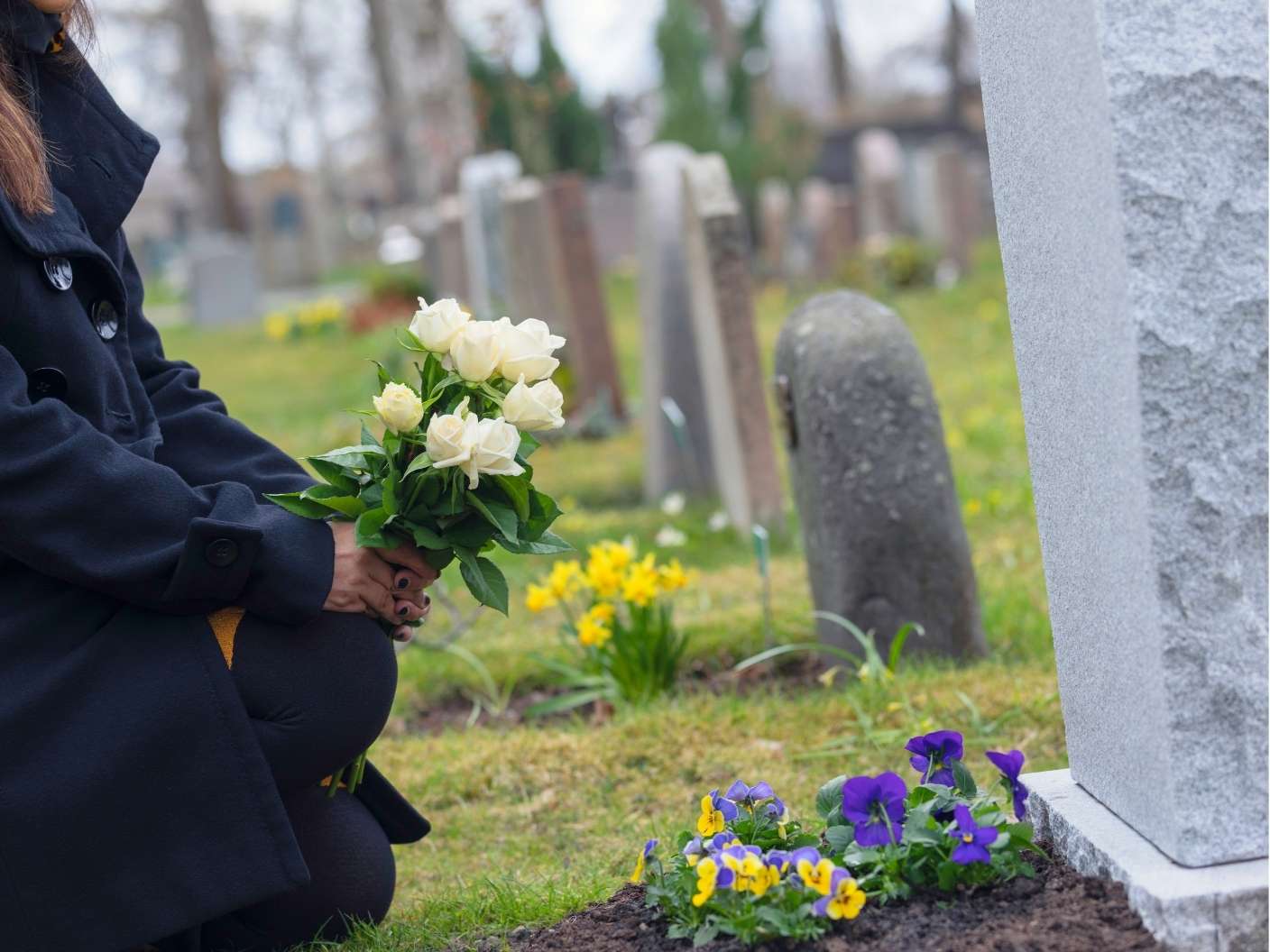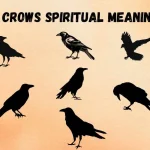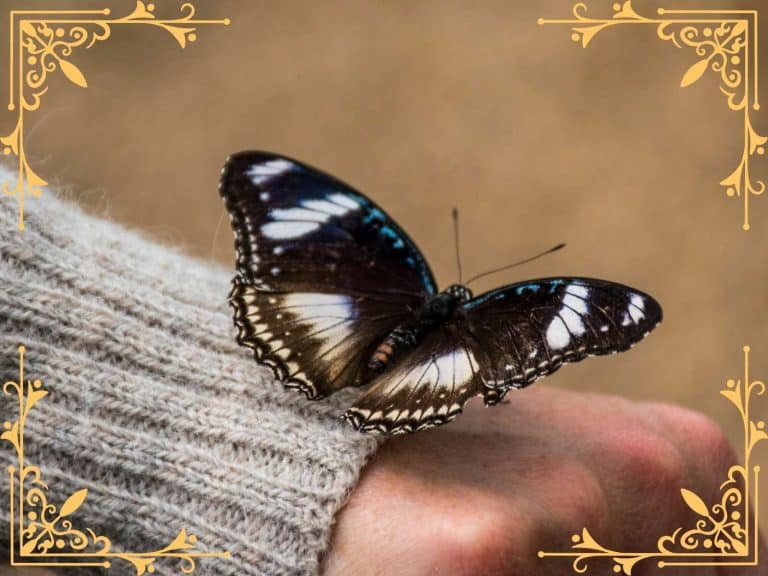Do The Dead Know We Miss and Love Them? Answered

When a loved one passes away, it’s natural to wonder if they are aware of our lingering affection and longing for their presence. This question has puzzled humanity for centuries, prompting diverse beliefs and philosophies across cultures.
While the answer may not be definitive, exploring various perspectives can provide comfort and insight into the enduring bond between the living and the deceased.
In this blog post, we delve into scientific research, spiritual traditions, and personal experiences to examine whether the dead know we miss and love them.
Join us on this thought-provoking journey as we seek solace and understanding in the face of life’s inevitable partings.

Key Takeaways
Do The Dead Know Our Feelings for Them?

The question of whether the dead are aware of our feelings and thoughts towards them is a profound and complex one that has puzzled humanity for centuries.
While different religions and philosophies offer diverse perspectives, there is no definitive scientific evidence to support or refute this notion.
Some believe that the soul or consciousness continues to exist after physical death, potentially allowing the deceased to perceive the emotions and sentiments directed towards them from the living.
Others argue that once life ends, all awareness and cognition cease, making it impossible for the dead to have any knowledge of the world they left behind. Ultimately, the answer likely lies in one’s personal beliefs and spiritual inclinations.
However, many find comfort in the idea that their love, gratitude, and cherished memories towards those who have passed on can somehow transcend the veil of death and reach the departed in some form or another.
Do The Dead Know That We Miss And Love Them?
Sure, even the dead can sense our feelings. Most of the time, we assume that the spiritual realm is relatively high in the heavens.
Yet that is not the case. The spiritual and material worlds are entangled. This explains why some portals and paths can be found in specific locations within the earth world.
As a result, when a loved one passes away, you are still close to them. Simply put, they no longer exist in their physical form.
They are not far from you, though. You’ll feel free to communicate with your loved one’s spirit once you’ve given this understanding time to sink into your consciousness.
The deceased know our love for them and our desire to bring them back to life. They communicate with us through gifts and messages because of this.
If the situation worsens, the dead may return to earth as animals. They can stay with us for years before departing.
The spirits of the deceased can feel our affection. If we miss and love the deceased, they can sense it.
1) A loved one passed away
Those who have lost a loved one frequently ask questions like this one. Your lost loved one still senses your affection.
Most of the time, they also miss and love you terribly. It is, therefore, simple for them to sense your vibration and energy anytime you are grieving a loss.
Also, because humans operate less frequently than the spiritual world, we frequently fall short of understanding how our deceased loved ones feel.
But our deceased loved ones still perceive our love and loss for them. They share the same sentiments.
2) Passed-away family member
This might be partial. Depending on how you feel about the family member, It’s possible that the spirit won’t pick up on your energy and vibration if you aren’t close enough to this individual.
A family member might experience the feelings of those closest to them when they were living. So it all depends on how close you are to the person.
2) Death of someone we know
If the deceased was someone you knew, they could have known whether or not you loved and missed them. Signals and vibrations from the spiritual world are simple to pick up.
So, if the deceased is someone you know or are close to you, they may be able to sense your love and loss for them. Even after death, your relationship will grow thanks to your tie.
Religious and Cultural Explanations
Religion plays a significant role in shaping our beliefs about life and death. Let’s explore how some major religions address the question of whether the dead are aware of our love and longing for them.
1) Hinduism
In Hinduism, the belief in an afterlife is intricately tied to the concept of reincarnation. According to Hindu philosophy, the soul is reborn in a new body after death.
While the departed soul may not have immediate knowledge of our emotions, it is believed that they continue to exist in another form and can be reached through rituals and prayers.
Hindus believe that the cycle of birth, death, and rebirth is governed by the law of karma, and the actions of an individual in their present life determine their future reincarnation.
The ultimate goal is to achieve moksha, or liberation from the cycle of rebirth, and merge with the divine consciousness.
2) Christianity
Christian beliefs vary, but the general consensus is that the departed are aware of our love for them. The concept of heaven and the eternal presence of God allows for the deceased to perceive our emotions. It is believed that they become part of the communion of saints, a spiritual bond that unites the living and the dead.
In many Christian traditions, prayers and acts of remembrance are offered for the souls of the departed, with the belief that these practices can help them in their spiritual journey. The idea of eternal life in the presence of God provides solace and hope for those grieving the loss of loved ones.
3) Islam
Islamic teachings suggest that the dead are aware of our emotions to some extent. It is believed that the soul remains near the body for a certain period after death, allowing them to witness the grief and love of their loved ones.
However, as time passes, the focus shifts towards the afterlife and the departed soul’s journey towards judgment. In Islamic belief, the state of the soul after death is determined by their deeds and faith during their earthly life.
Muslims offer prayers and perform rituals to honor the deceased and seek divine mercy for their souls.
4) Buddhism
Buddhism teaches that the state of consciousness after death is impermanent and constantly changing. While the deceased may not possess direct knowledge of our emotions, their spiritual energy can connect with the living through meditation and prayer.
The concept of rebirth is central to Buddhist beliefs, where the consciousness of the individual transitions to a new existence based on their karma, or the sum of their actions in previous lives.
Buddhists practice rituals and chanting to aid the departed souls in their journey towards a favorable rebirth or, ultimately, the attainment of nirvana, the cessation of suffering and the cycle of rebirth.
5) Indigenous Cultures
Indigenous cultures and countries have diverse beliefs regarding the afterlife and communication with the dead. Many embrace the idea that the deceased continue to be a part of our lives and can communicate with us through dreams, signs, and rituals.
In some traditions, ancestors are revered and believed to guide and protect their living descendants. Various practices, such as offerings, ceremonies, and storytelling, are employed to honor the deceased and maintain a connection with them.
The belief in the interconnectedness of all living beings and the natural world is often central to indigenous perspectives on death and the afterlife.
Is There Communication After Death? Explanation In The Bible
The Bible, a sacred text for Christians, provides insights into the possibility of communication with the dead. While the Bible does not explicitly endorse or condemn such practices, it offers guidance on how to approach the subject.
In the Old Testament, various accounts suggest that spiritual mediums or diviners could communicate with the dead. However, these practices were often discouraged or prohibited due to the potential for deception or influence from malevolent spirits.
The Bible emphasizes seeking guidance from God rather than attempting to communicate directly with the deceased.
In the New Testament, Jesus’ resurrection and appearances to his disciples provide a glimpse of communication beyond death.
These encounters demonstrate that the departed can make themselves known to the living, but they also highlight the importance of discernment and spiritual connection to distinguish between genuine communication and deceptive forces.
According To The Spirit World, Is It Possible To Speak With The Dead?
Beyond religious and cultural beliefs, some individuals claim to have experienced communication with the dead through mediums, psychic phenomena, or near-death experiences.
Mediumship, the practice of communicating with spirits, has been a subject of fascination and controversy. Mediums claim to facilitate communication between the living and the dead, providing solace and closure to those seeking contact with their departed loved ones.
While skeptics argue that mediumship is based on trickery or psychological factors, supporters believe it offers genuine glimpses into the afterlife.
Near-death experiences also shed light on the potential for communication with the deceased. Many individuals who have had near-death experiences report encounters with deceased loved ones, angels, or spiritual beings.
These encounters are often characterized by a profound sense of love and peace, suggesting a connection between the living and the dead beyond physical existence.
Do People Who Have Died Come Back To See Us?
Throughout history, there have been numerous accounts of individuals claiming to have encountered deceased loved ones or spirits. These experiences, commonly referred to as visitations or apparitions, provide a sense of comfort and reassurance to those grieving.
Visitations can take various forms, including dreams, visions, or the feeling of a presence. Many people report feeling a loved one’s touch, hearing their voice, or receiving messages from beyond the grave.
While these encounters cannot be scientifically validated, they hold deep personal significance for those who experience them, offering a sense of connection and healing.
The deceased can appear to us on Earth in different ways:
Our world is connected to the spirit world where the dead reside. This is why we can sometimes sense the presence of our deceased loved ones among us.
Are The Deceased Currently A Part Of Our Lives?
The question of whether the deceased are a part of our lives is subjective and deeply personal. While religious and cultural beliefs provide frameworks for understanding the afterlife, the experience of loss and grief is unique to each individual.
For many, the memory and love for the departed remain an integral part of their lives. The deceased live on through cherished memories, stories, and traditions.
Their presence is felt in the lessons they taught, the values they instilled, and the impact they had on the lives of those they touched.
While the departed may not be physically present, their essence continues to shape and influence the lives of the living.
Final Words
The question of whether the dead know we miss and love them remains a mystery. Religious and cultural beliefs offer varying perspectives, and personal experiences further deepen the complexity of this inquiry.
While we may never fully comprehend the extent to which the deceased are aware of our emotions, the love and longing we feel for them transcend physical existence.
Whether through religious rituals, personal encounters, or cherished memories, we find solace in the belief that our love continues to connect us with those who have departed.
Infographic: Do The Dead Know We Miss and Love Them?
You Might Also Like
1) When Someone Dies Can They Come Back to See You?
2) Candle Color Meanings: Uses in Magic, Rituals, and Spells
3) Dogs Barking or Crying at Night Spiritual Meanings (Hearing!)
4) Horseshoe Spiritual Meaning: Hang It Over Door for Luck!











